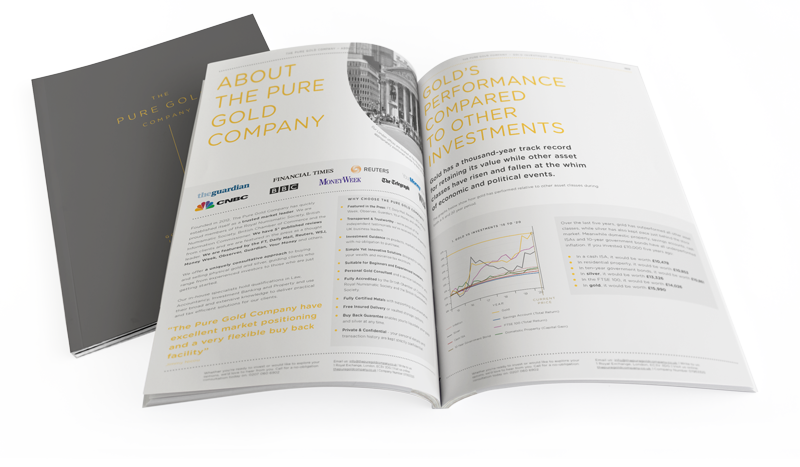Selling gold, whether it’s a single coin or a larger portfolio, can feel daunting. You want to know you’re getting a fair price, that the process is secure, and that you’re dealing with a reputable buyer. This guide is designed to give you clarity and confidence, helping you choose the right option for your specific situation.
We’ll walk you through the key factors to consider, explain the pros and cons of each type of buyer, and show you how to avoid the common pitfalls that can cost you hundreds or even thousands of pounds, in line with market guidance from leading authorities like the World Gold Council.
Why You Can Trust This Guide
The Pure Gold Company team has been helping clients navigate the precious metals market since 2014.
We are proud to be:
- Affiliate Members of the London Bullion Market Association (LBMA)
- Official Partners of The Royal Mint
- Rated 4.9/5 on independent review sites
Risk Warning & Disclaimer: Please be aware that the value of gold can go down as well as up, and you may not get back the full amount you invested. This article is for informational purposes only and does not constitute financial advice.
Key Takeaways:
Selling Gold in the UK
![]() Always Verify
Always Verify
Before selling, check a dealer’s credentials. Look for membership in trade bodies like the LBMA and check independent reviews.
![]() For Investment Gold (Bullion)
For Investment Gold (Bullion)
Your best option is a specialist bullion dealer. They offer the most competitive prices and have the expertise to value your assets correctly.
![]() For Jewellery & Antiques
For Jewellery & Antiques
Reputable local jewellers are good for convenience, while specialist auction houses are best for high-value, rare, or antique pieces.
![]() For Speed vs. Price
For Speed vs. Price
Understand the trade-off. Fast-cash options like pawnbrokers offer the lowest prices. Getting the best value often takes a few days for proper verification.
5 Key Factors to Consider Before You Sell
To find the best place to sell your gold, first assess what you have and what you need.
What is the form of your gold?
The type of gold you own is the biggest factor. A specialist bullion broker is the right choice for investment-grade coins and bars, whereas an antique shop or auction house is better suited for a rare piece of jewellery with historical value.
What is its weight and purity?
Investment gold is typically 22 or 24 carat (91.6% or 99.99% pure). Jewellery can be much lower, often 9 or 18 carat. You can usually find a hallmark stamp indicating the purity (e.g., .375 for 9ct, .999 for 24ct). If not, a reputable buyer will test it for you. The weight and purity determine the baseline value of your item.
What is its condition?
While damage won’t affect the melt-down value of pure gold, it can reduce the “premium”—the value an item has above the raw gold price. For collectible coins or fine jewellery, condition is critical. For bullion, as long as the bar or coin is identifiable, minor scuffs are usually not an issue.
How much are you selling?
Different buyers specialise in different volumes. A local jeweller is well-equipped to handle a few small items, whereas a dedicated bullion dealer like The Pure Gold Company is set up for larger transactions (typically over £5,000) and can offer more competitive rates at that scale.
How quickly do you need the money?
The fastest options are almost always the worst value. Pawnbrokers and “cash-for-gold” shops offer instant cash but at a significant discount. A professional bullion dealer will take a few days to test and verify your gold, but this process ensures you receive a fair, market-reflective price.
Understanding Your Options:
The Best Places to Sell Gold
Here is a breakdown of the 5 main types of gold buyers, with their pros and cons.
1) Best for Investment Gold: Specialist Bullion Dealers
If you are selling gold bars or coins (bullion), a specialist dealer is your best choice. They are experts in the investment market and price items based on the live gold price, ensuring you get a fair value.
- Pros: Most competitive prices, high security, expert verification. They understand tax-efficient assets like CGT-exempt coins.
- Cons: Not suitable for jewellery or scrap. Many have minimum transaction sizes.
- What to look for: A reputable dealer will be a member of a body like the LBMA and have a long history of positive independent reviews. For example, as official partners of The Royal Mint, we provide a trusted, transparent service for selling investment gold.
2) Best for Convenience: Local Jewellers
For smaller pieces of non-investment gold jewellery, a local, established jeweller is a convenient option. Many offer immediate payment.
- Pros: Fast, convenient for small items, no need for postage.
- Cons: They pay significantly below the spot price to cover their high overheads (rent, staff, etc.). Their expertise is in jewellery, not investment bullion.
3) Best for Rare & High-Value Items: Auction Houses
If you own a genuinely rare coin or a piece of high-end, signed antique jewellery, a major auction house like Bonhams or Sotheby’s may achieve the highest price by marketing it to collectors.
- Pros: Access to a global market of collectors, potential for very high prices.
- Cons: Very high seller fees (10-30%), a slow process (months), and no guarantee of a sale. Unsuitable for standard bullion.
4) Best for DIY Sellers: Online Marketplaces
Platforms like eBay allow you to control your own sale. This can be an option for lower-end jewellery, but it comes with significant risks.
- Pros: You set the price and are in full control.
- Cons: High risk of fraud, disputes, and counterfeit claims. You are responsible for accurately describing the item, postage, and security.
5) The Worst Places to Sell: Pawnbrokers & “Cash-for-Gold” Shops
We would never recommend these options unless it is an absolute emergency. Their business model relies on sellers who need cash urgently. They know this and offer prices that are often only a fraction of the gold’s true value, even for valuable investment pieces. They will almost always value everything at low scrap rates.
How to Get the Best Price for Your Gold
Know the Spot Price: The live market price of gold is set by authorities like the LBMA. While you won’t be offered the full spot price (buyers need a margin), knowing it gives you a benchmark for a fair offer.
Understand the Tax Implications (CGT): This is a critical point for UK sellers. It is crucial to understand that the tax-free status applies only to specific British coins that are considered legal tender, such as Gold Sovereigns and Britannias. Any profit from selling these is Capital Gains Tax (CGT) exempt. Gold bars, gold jewellery, and coins from other countries are subject to Capital Gains Tax on any profit made. Tax treatment depends on your individual circumstances and may be subject to change in the future.
Provide Documentation: If you have original receipts or assay certificates, provide them. This helps prove the item’s provenance and can speed up the sale.
Avoid Urgency: If you can, don’t sell in a hurry. Giving yourself time to deal with a reputable specialist will always yield a better financial outcome.
Why Sell Your Gold with The Pure Gold Company?
We strive to be the best place in the UK to sell investment gold.
Our clients choose us for our fair, transparent process and our expert service.

A Fair, Competitive Offer:
We base our prices on the live spot price.

Buyback Guarantee:
We offer existing clients a guarantee to buy back the gold they purchased from us, ensuring liquidity and peace of mind.

Expert Support:
Our brokers are here to help, not to pressure you. We offer free consultations to answer all your questions.

Security & Trust:
With our LBMA membership and Royal Mint partnership, you can be sure you’re dealing with a trusted, regulated company.
📞 Get a quote or call our team today for a no-obligation consultation.
Frequently Asked Questions (FAQs)
Q: What is the step-by-step process for selling my gold to a dealer?
A: While each dealer may vary slightly, a typical professional process is:
- Initial Consultation: You contact the dealer with details of what you wish to sell to get an indicative quote.
- Verification: You arrange for the dealer to securely collect or receive your gold. They will then professionally test it to verify its weight and purity.
- Formal Offer: Based on the verification and the live spot price, the dealer makes a formal, binding offer.
- Secure Payment: Once you accept the offer, payment is transferred directly to your bank account, typically within 1-2 working days.
Q: Do I need to provide ID to sell gold in the UK?
A: Yes. All reputable bullion dealers are required by UK anti-money laundering regulations (AML) to identify their customers. You will typically be asked to provide photographic ID and proof of address. This is a sign that you are dealing with a professional and compliant company.
Q: Can I sell gold bars without a receipt?
A: Yes. While receipts help establish provenance, a reputable dealer can test and verify your gold’s authenticity without one.
Q: Is it safe to post my gold?
A: Only if you use a fully insured, tracked, and reputable service. For our clients, we often arrange a secure and fully insured collection service to remove any risk from the process.
Q: Will I get the full spot price for my gold?
A: No buyer will offer 100% of the spot price, as they need to incorporate a small margin to cover costs.
Q: Why are Royal Mint Gold Britannias and Sovereigns exempt from Capital Gains Tax?
A: As they are considered legal tender sterling currency in the UK, any profit made from selling Gold Britannia or Gold Sovereign coins is exempt from Capital Gains Tax (CGT). This makes them a uniquely tax-efficient investment compared to gold bars or other coins from other countries, which are subject to CGT.
Q: Is now a good time to sell gold?
A: As we cannot provide financial advice, the best time to sell depends entirely on your personal financial goals. The price of gold fluctuates daily based on global market conditions. Many of our clients sell gold to rebalance their investment portfolio, free up capital for another purchase, or take profits after a period of price growth. We can provide you with up-to-the-minute market information to help you make your own informed decision.


